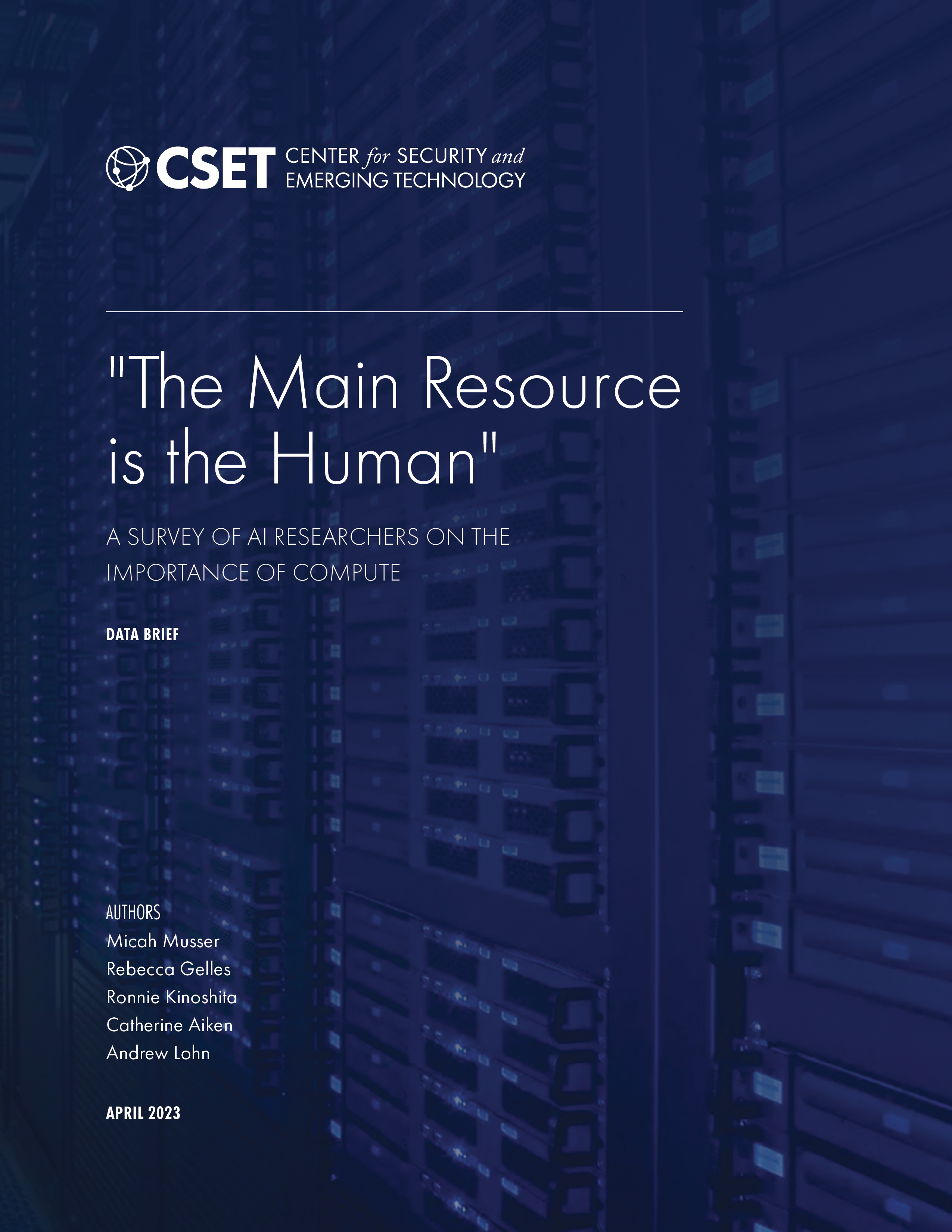Executive Summary
Artificial intelligence is increasingly understood as a strategic technology that governments seek to promote domestically and constrain for adversaries. One approach to promoting, or constraining, AI progress centers on the role of computational power (or “compute”). This approach encourages policymakers to enact policies and provide support to make compute resources more accessible to domestic researchers, perhaps while limiting their availability for strategic competitors. Relatedly, there are concerns that the increasing computational demands of AI breakthroughs risk concentrating AI research in the hands of a small number of well-resourced actors, limiting the diversity of AI researchers, what research receives meaningful attention, and who benefits from AI progress.
Despite growing policy attention to these issues, whether and how AI researchers view compute as a critical resource for their research is unknown. To address this gap, the Center for Security and Emerging Technology (CSET) surveyed more than four hundred AI researchers to examine their compute use, how they think about compute’s role in AI progress, and the degree to which they are constrained (or not) by compute. Key findings include:
1. Surveyed AI researchers are not primarily or exclusively constrained by compute access. More respondents report talent as an important factor for project success, a higher priority with more funding, and a more limiting factor when deciding what projects to pursue. Data availability is also cited as a more common reason for rejecting projects.
2. There are few differences between academic and industry AI researchers in terms of compute use and concerns. While academic researchers report spending less money than industry AI researchers on compute, they report similar levels of hardware use. Both groups report similar levels of concern about insufficient compute allowing them to make meaningful contributions to AI research in the future.
3. Academics report that changes in their compute needs outpace changes in their access more often than industry researchers. However, most academics do not cite compute resources as a major factor that could cause them to leave for industry jobs.
4. High compute users are more concerned about compute access. Researchers reporting higher levels of compute use also report higher levels of concern about a lack of compute allowing them to make contributions, and more often select additional compute as a top budget priority.
5. Surveyed AI researchers hold a range of opinions about government-provided AI research resources. Most researchers select grant funding as a resource that would be useful to them, though many also select compute. Some researchers express skepticism about the government provision of these resources and concerns about an exclusive focus on scaling up compute.
Our results suggest that compute cannot be viewed as an all-purpose lever for promoting AI progress. Provisioning compute domestically and restricting access to it internationally may promote or constrain certain types of AI research, but may have less impact on other AI research areas. Well-intended attempts to democratize AI research by provisioning large-scale compute may even run the risk of exacerbating existing inequalities in compute use. This report’s findings suggest that in some ways, talent is more important than compute for fostering AI research, so policymakers should evaluate how compute-focused interventions can be coupled with policies to foster AI talent in order to effectively promote AI research progress.
